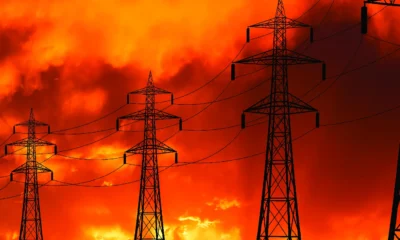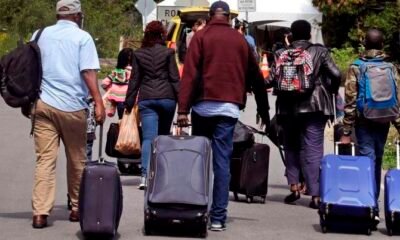News
Melting Ice Caps Slow Earth’s Rotation & Now Scientists Are…

What do you think would be the implications should melting ice caps get in the way of Earth’s rotation?
It’s no longer a hypothetical question but something that has already taken place, leaving behind concern of a global nature.
The melting ice caps getting in the way of Earth’s rotation has meant clocks are now ahead by a second.
Scientists are digging in to arrive at new postulations for more implication of this slow-down on earth’s rotation.
One of them, Eric Sorensen is already explaining how this “negative leap second” is linked to climate change, and why losing one second of time matters much more than you might think.
Read also: Women Financial Inclusion: IFC Woos Fintech Firms, Digital Services Providers
His submissions were published in Global News, which has also referenced the journal Nature.
It has submitted that though not consistent, that the phenomenon would have huge implications how we measure time.
According to the account, melting polar ice caps are redistributing a massive amount of water from the North and South poles across the world’s oceans. This is causing the Earth’s rotation to significantly slow.
This becomes obvious when a figure skater raises her arms over her head to rapidly spin. When she brings her arms back down, her spin slows. So as more and more water weight is diverted from the poles and distributed around Earth’s bulging centre, so too does the planet’s spin slow.
What is the role of global warming to this?
“This change in rotation has never been seen before, and this re-emphasizes that we are living in a time when unprecedented changes are happening.”, says the study’s lead author, geophysicist Duncan Carr Agnew.
At the same time however, an opposite force has been making the Earth speed up. For about 50 years, trends in the planet’s core have been causing the Earth to accelerate.
After modelling the implications of these two conflicting forces Agnew calculated that we will need a “negative leap second” event by 2029, in which the world’s clocks go back one second for the first time in history.
“This has never happened before, and poses a major challenge to making sure that all parts of the global timing infrastructure show the same time,” Agnew said.
Article originally posted by Kathryn Mannie



























